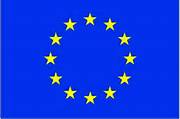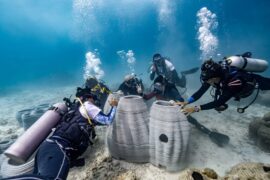The European Commission announced on April 21 that it is giving Thailand six months to significantly crack down on illegal, unregulated and unreported (IUU) fishing or be subjected to a ban on exports of fishery products to the EU by the end of this year. The Southeast Asian nation, which ranks as the third largest seafood exporter in the world with annual revenues of approximately $5.4 billion, reportedly sells more than $700 million worth of product in Europe.
According to European Union statistics, illegal fishing worldwide accounts for about 15% of global catches and has spawned a EUR 10 billion black market that is threatening sustainability of healthy stocks of marine life.
“Our EU rigorous policy on a harmful practice such as illegal fishing, together with our genuine capacity to act, is paying off,” said Karmenu Vella, European commissioner for the environment, maritime affairs and fisheries. “I urge Thailand to join the European Union in the fight for sustainable fisheries. Failure to take strong action against illegal fishing will carry consequences.”
He continued: “By using our market weight the EU is getting important players on board. Both Korea and the Philippines have taken responsible action, amended their legal systems and switched to a proactive approach against illegal fishing.”
Thai Prime Minister Responds Addressing the threat of possible EU prohibition on Thai seafood imports, Prime Minister Prayut Chan-o-cha said his nation is working hard to deal with illegal and unregulated fishing and meet the EU’s imposed deadline.
Addressing the threat of possible EU prohibition on Thai seafood imports, Prime Minister Prayut Chan-o-cha said his nation is working hard to deal with illegal and unregulated fishing and meet the EU’s imposed deadline.
According to a story in the Bangkok Post, Sansern Kaewkamnerd, deputy government spokesman, reported that General Prayut has instructed officials from related agencies to “fully and systematically tackle human trafficking, especially that related to the fishing industry.”
Authorities in Thailand have developed a roadmap of concrete action to eliminate illegal, unreported and unregulated (IUU) fishing in Thai and international waters. The measures apply to Thai and foreign-flagged fishing boats in Thai waters and to Thai-flagged vessels in international waters. The roadmap falls under a new legislative framework for fisheries management that will enter into force in June of this year. The measures are designed to fully address IUU concerns and rebuild confidence in Thailand’s fisheries industry.
IUU fishing is one of the most crucial global threats to the sustainable management of marine fisheries worldwide. It has significant environmental, economic and social implications and jeopardizes the biological integrity of the ocean.
The European Union’s (EU) report last year on fishing activities in Thailand referred to a number of fishing practices which were still not in line with regulations. The Thai Government has taken those allegations seriously. Efforts to tackle illegal fishing and improve the sustainable management of Thailand’s marine and aquaculture environment are a top political priority and are taken by officials at the highest levels of government.
Frozenfoodsbiz.com reported on the roadmap last month after meeting with Dr. Waraporn Prompoj, the Bangkok-based deputy director of Thailand’s Department of Fisheries, and Dr. Adisorn Promthep, director of Thailand’s Office of Agriculture Affairs in Washington, DC, during the Seafood Exposition North America in Boston. Dr. Waraporn was scheduled to go into further detail about Thailand’s efforts to combat IUU fishing and human trafficking during a seminar at the Seafood Expo Global in Brussels on April 21.





